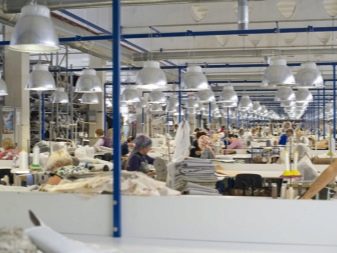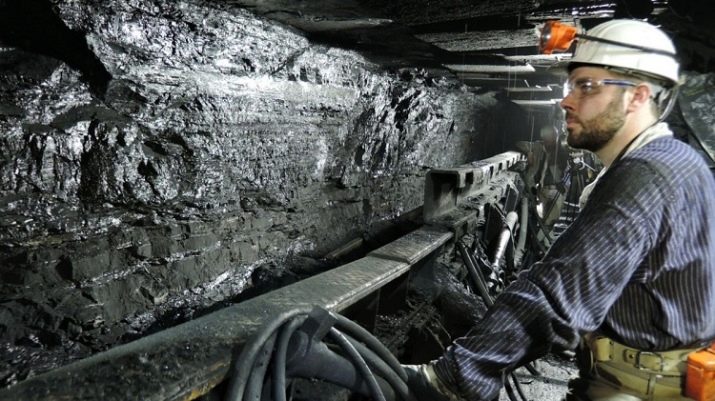All about blue-collar occupations

Primary and secondary technical education provides students with certain working abilities and knowledge, which are most often associated with physical work - such professions are called workers. In colleges of this type, most of the study time is devoted to specialized practice, closely related to the future craft. Also, in parallel with the training, there is an acquaintance with manufacturing enterprises and participation in the creation of goods.
Thanks to such a quick introduction to professional work, students in the future have more chances to find and fill a demanded profile vacancy. In this article, we will talk in more detail about what kind of working professions are, and also describe in detail the essence of this term.

What is it and who is it suitable for?
As mentioned above, the definition of blue-collar occupations applies to graduates of educational institutions that associate a profession with manual work. Training usually lasts no more than 2-3 years, and in rare cases it takes very little time - you can prepare for several months in special courses. Often the skills required for employment can be learned directly from the recruiting company. Blue-collar occupations are usually described in three terms, such as “highly skilled,” “low-skilled,” and “low-skill” work. Labor with high qualifications is in greatest demand in the labor market, but requires certain practical skills and knowledge in the specialty from the worker.
Handcraft suitable for both men and women... Training in such an occupation is preferred by those graduates who are interested in some specific physical labor, those who are fond of and often do manual work, and those who do not want to study the school curriculum in detail. Individuals in this category can realize their talents and abilities much earlier than university graduates. In addition, studying at universities will only burden students, because complex specialized professions are not for everyone, but a favorite useful occupation will be much more promising and in the future will allow the employee not to be registered at the employment center.
It often happens that manual labor is chosen by intellectual people who do not like the fuss of high positions and constant nerves from serious responsibility. Such individuals prefer to create products with their own hands and observe the results of work immediately, rather than keep endless records and monitor the work of employees. In production, the most appreciated are those workers who love and know their job, treat work with responsibility and discipline, and also know how to build relationships with the team.
In addition, an important quality of a good employee is the absence of bad habits. Large enterprises create demand in the labor market for diligent workers who are ready to perform monotonous tasks that do not differ in variety. Most often, such labor is required in the factory production of clothing, food products or machine parts.
Working professions are in demand not only in mass production, but also in medium and small enterprises. The list of such companies includes restaurants, hotels, the organization of agriculture and construction - the entire service sector consists of people engaged in manual labor.


Professions in various fields
Basically blue-collar professions are in demand in large companies engaged in mass production of products. The simplest specialties of a working person can be both male and female. We present to you a rating of promising industry-wide professions that relate to the most diverse areas of work:
- waiter - an ideal part-time job for young active students;
- bartender - mostly men work in this position, the work is interesting and varied;
- salesman - the specialty is always in demand in the labor market;
- hairdresser - a predominantly female profession that opens up prospects for their own business;
- asphalt paving machine operator, - employees who provide a good road surface are always in demand in any country;
- welder - the best profession to work in an industrial enterprise;
- tailor - the specialty allows you to work both in a factory and in a private studio;
- handyman - the lesson does not imply any specific work, usually the employee performs tasks related to physical activity.
This is just a short list of the best jobs on the job market today. But there is also a classification of blue-collar occupations, each of which is responsible for different areas of work in demand. Consider the main areas of specialties that will never lose their relevance.


Construction
The profession of a builder in ancient times was highly demanded, in our time the popularity of this business is only growing. The progress of mankind creates more and more requirements for the creation of residential, technical and industrial premises, because of this, the general concept of "builder" hides many blue-collar occupations.
Representatives of this category can be both knowledge workers, for example, architects or designers, and creative individuals who prefer manual labor.The basic professions associated with construction are mostly male, but in rare cases, women can also occupy positions in this area. Consider the top in-demand occupations that relate to the profession of a builder.
- Plumber... Many people think that representatives of this craft are only engaged in cleaning clogged pipes or replacing damaged plumbing, but this activity is only an additional income to the main work of a plumber. Professionals in this working profession are actively involved in the construction of new buildings - they lay the most essential components of housing, such as sewers, heating and water pipes. Plumbers understand the correct construction of the piping system and component parts, such as fittings, valves, bends and adapters. In addition, a qualified technician must be able to install special devices, as well as adjust, repair and regulate their operation.
- Tiler-facing... Specialists of this craft are engaged in the final decoration of the premises - they lay ceramic tiles, kitchen tiles or PVC panels. Also, professional cladders are able to create a covering of artificial or natural stone on the floor and walls of the room. Those workers who have a delicate artistic taste and sense of style are highly valued - they put maximum effort into their work, and therefore the result exceeds any expectations. Tilers decorate a wide variety of locations: homes, apartments, swimming pools, schools, offices, hospitals, entertainment venues and shopping malls.
- Mason... One of the oldest specialties - it has not lost its relevance for thousands of years. Almost everything in the construction of a building depends on the skills of a bricklayer: the quality of the foundation pouring, the assembly of a metal frame with concrete, the correct laying of bricks or cinder blocks, as well as the creation of door and window openings. The work of a specialist lays down the future appearance of the structure, ensures stability and reliability.
Bricklayers can be highly skilled and open the door to challenging high-paying jobs such as building tunnels, bridges, dams and other industrially important projects.

Industrial enterprises
In this area of work, there are different professional standards that employees must comply with. Consider the most popular blue-collar occupations in this category.
- Machine operator... Such artisans are mainly employed in enterprises for the processing of wood and other materials. The duties of machine operators are to saw the felled timber, produce boards and beams, as well as drilling, boring and grinding metal. All work is performed on professional equipment, from which the title of the position originated.
- Turner or miller. These two specialties are similar to each other - foremen work on special machines with semi-automatic, automatic or manual control. The duties of the employees of these positions include the production of metal parts for various mechanisms, machines and trains. But the essence of the operation of the equipment is different - for the lathe masters the workpiece rotates on the machine, and for the milling machines the equipment itself moves, and the material being processed remains stationary.
- Locksmith... Most often, working in this craft involves manipulating metal equipment. Locksmiths can be of different specialties, for example, assembler, electrician, repairman, or customizer.
Each area includes different kinds of responsibilities that are in demand both in large enterprises and in small workshops.

Mining industry
Specialists of this type deal with difficult and life-threatening jobs, which is why vacancies are opened only for men. Consider a few extractive industry jobs that fit into the blue-collar job category.
- Miner... Specialists work in deep mines, extracting coal - crushing coal seams using hand tools or special equipment. The profession is risky not only because a mine collapse can happen at any moment, the work is also hazardous to health - minerals leave small deposits in the respiratory tract of a person, and this causes serious diseases. All complicating factors are taken into account in employment - the occupation is quite high-paid, and also provides the employee with hot work experience and a decent pension.
- Explosive... As the name of the craft suggests, the worker uses explosives. The essence of labor is to split large layers of minerals using an explosion. To do this, the blaster must be able to choose suitable places for drilling holes in the rocks, calculate the amount of explosives put into them, and also take into account the likely directions of the explosion. Representatives of the specialty are engaged in the destruction of emergency buildings using the same explosives. A professional must be trained and highly qualified, because people can seriously suffer from the slightest mistake.
- Tunneller... Qualified specialists are engaged in creating conditions for the extraction of minerals in mines - they install supports and fasteners, lay communications and a railroad for trolleys.
Drivers work not only in mines - the craft is in demand when creating subways and tunnels.

Agriculture and forestry
Despite the impressive technological progress, there are many agricultural positions that are in great demand on the labor market, because the development of technology is accompanied by the emergence of new specialties. Here are some of the most interesting jobs related to agriculture and forestry.
- Agricultural mechanic... Workers work on a variety of machines such as tractors, harvesters, seeders, sprayers or harrows. The machine operators ensure the harvest and preparation of the field for sowing the next crop. In addition, the foremen keep the equipment working and, if necessary, repair it.
- Forester... Modern forested areas need protection not only from the abuse of deforestation, but also from fires, diseases and pollution by man-made waste.
- Gardener... The duty of representatives of this position is to improve lawns, flower beds, parks and greenhouses. Thanks to gardeners in cities, you can find beautiful green recreation areas.

Education
Manual workers can receive vocational training in educational institutions of secondary specialized education, such as colleges, technical schools and schools. There are at least 4,000 such institutions on the territory of Russia. - they are located in every region and in many small towns. The direction of specialties in colleges is constantly being adjusted depending on the requirements of professional standards. Many large companies conclude an agreement with technical schools, thanks to which students must undergo practical training in production - in this way, enterprises find new promising workers. And for those students who express a desire to study further, there is a special training system that allows them to enter universities on benefits.
To start studying at a school, you do not need to pass difficult exams or the Unified State Exam, because in such institutions there is often a shortage of students, so it is quite easy to enroll there, even on a budget. All that is required from a graduate is a certificate of completion of 9 or 11 grades, an application for admission to study and a certificate of health.
Sometimes technical schools agree to enroll those students who have completed only 8 grades for training, then the children are given the opportunity to study in an evening school.

Career and prospects
For the level of wages and career growth of employees, their qualifications are responsible. Upon completion of training at a technical school, the graduate receives a low grade, which in the future can be increased in the process of work or taking special courses. But the higher the qualifications of the worker, the higher the responsibility, so if you have raised your rank, you will have to regularly confirm it - on average, once every 3 years. But the salary level of a person who has built a career by increasing the rank will be much higher.
At the end of the last century, blue-collar professions fell sharply in demand, because at that moment there was an industrial crisis, but after a couple of decades the situation is gradually improving. Many enterprises provide promising work in production, but unlike old occupations, new vacancies require from employees not only quick work, but also knowledge of their business. The greatest success is achieved by those employees who show initiative in work and reveal their creative potential.

The salary
The main role in the formation of the volume of wages is played by the categories of workers and the place of their employment. In different enterprises, the income of representatives of the blue-collar profession may vary depending on the state of the company's economy. But the law defines a unified tariff and qualification reference book, which regulates the minimum wage of a particular profession. Consider the size of the income of representatives of different spheres of work according to the ETKS:
- for workers in the construction sector, wages must be at least 28 thousand rubles;
- for mining professionals - from 35 thousand rubles;
- for employees of enterprises of heavy engineering, electrical equipment and radio components, the income should be 30 thousand rubles;
- for transport specialists - at least 25 thousand rubles.
For representatives of other blue-collar occupations that do not require high qualifications, the starting salary may be even less, for example, sellers receive from 20 thousand rubles, and employees of cafes and hotels - about 18 thousand rubles.









